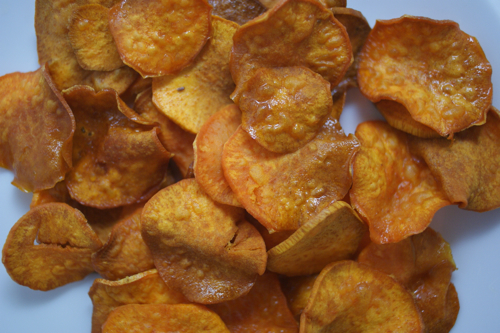Scientists don’t need fancy GM techniques to make weird plants that are not so good for human beings to consume. BoingBoing’s Maggie Koerth-Baker has a prime example of this: the Lenape potato, created in the 1960s — using conventional breeding — to fry up into a perfect potato chip. And it made the few people who ate it really, grossly sick.
Koerth-Baker says it worked “like a fast-acting stomach bug.” Which is a nice way of saying that it was akin to “serious illness accompanied by vomiting, diarrhea, loss of consciousness, and convulsive twitching.” That is the effect of solanine, the potato-made alkaloid that is not so friendly to the human system. She writes:
Despite an almost boring reputation as the squishy white bread of the plant kingdom, potatoes actually come from somewhat nasty roots. Their closest relatives are innocuous enough. Potatoes have strong genetic ties to tomatoes and eggplants. But their more distant cousins include tobacco, chili peppers, deadly nightshade, and the hallucinatory drug-producing flower, datura.
This is a phylogenetic family that is ready to throw down, chemically speaking.
Solanine, it turns out, is the potato’s way of throwing a punch. All potatoes have it, but the Lenape has a lot — almost four times as much as your average Russet potato. It’s also what makes unripe potatoes so terribly hard on your system.
But it’s worth it for perfectly golden potato chips! No, it’s not. In the end, the USDA recalled the Lenape from agricultural production.



